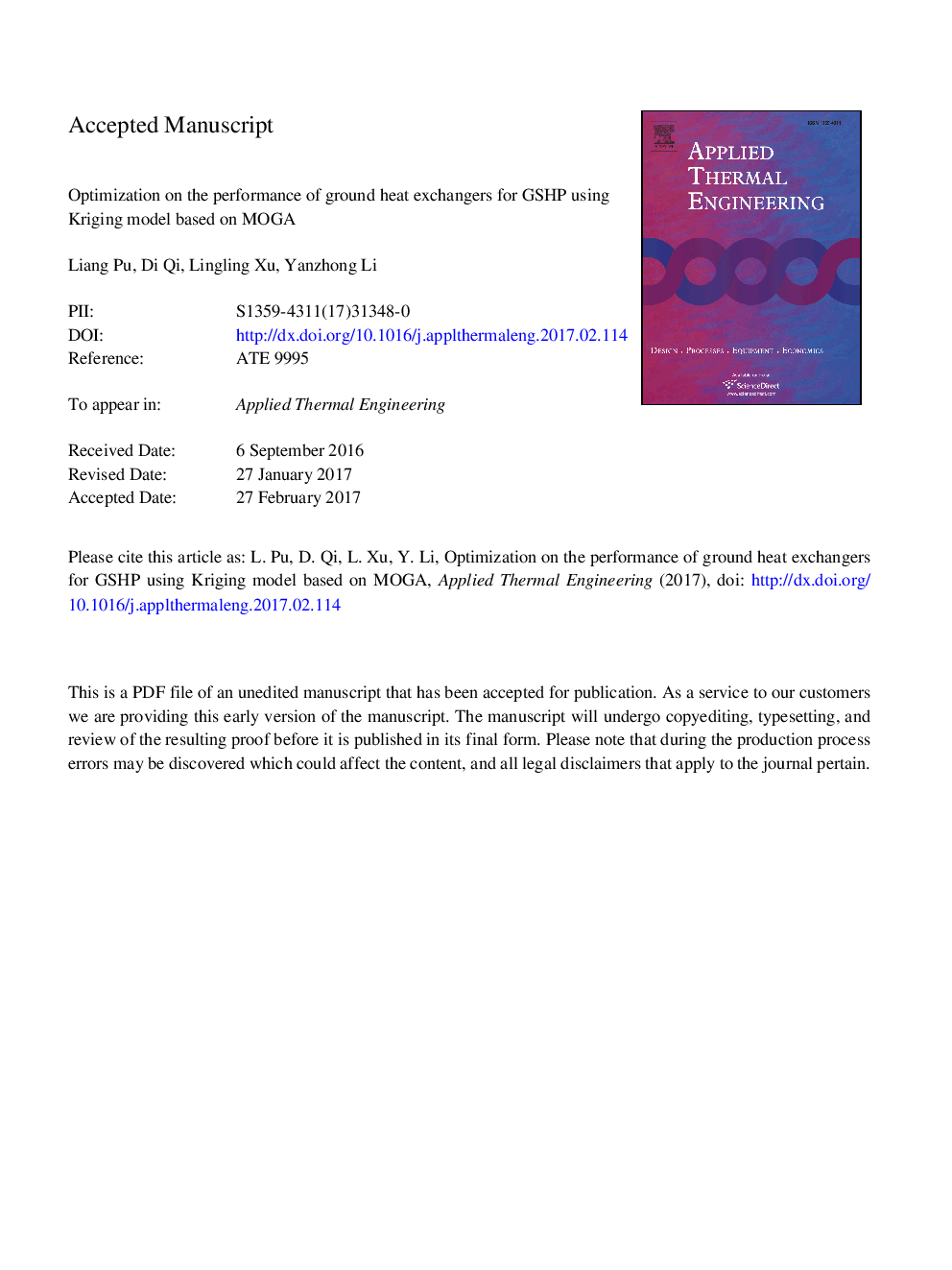| Article ID | Journal | Published Year | Pages | File Type |
|---|---|---|---|---|
| 4991379 | Applied Thermal Engineering | 2017 | 45 Pages |
Abstract
A multi-objective genetic algorithm (MOGA) combined with Kriging response surface method was proposed to optimize the design parameters of the ground heat exchanger (GHE) for ground source heat pump (GSHP). The effect of design parameters, including inlet flow velocity, inlet flow temperature, U-tube diameter, borehole diameter and pipe spacing on the entropy generation number (EGN) and the integrated evaluation factor were analyzed, respectively. Furthermore, the optimization results using MOGA approach and Screening approach were compared. Finally, the multi-objective design optimization was carried on GHEs and the results were verified in the GSHP system simulation platform using TRNSYS software. The results illustrated that both the MOGA optimization approach and the Screening approach using the Kriging model could improve the thermal performance of GHEs. Furthermore, the thermal performance of optimal results in the MOGA approach was superior to that in the Screening approach. Compared with the original GHE, the average energy consumption of heat pump of the optimal GHE in the MOGA approach decreased by 215.86 kJ·h-1, while that in the Screening approach declined by 133.64 kJ·h-1 .
Keywords
Related Topics
Physical Sciences and Engineering
Chemical Engineering
Fluid Flow and Transfer Processes
Authors
Liang Pu, Di Qi, Lingling Xu, Yanzhong Li,
